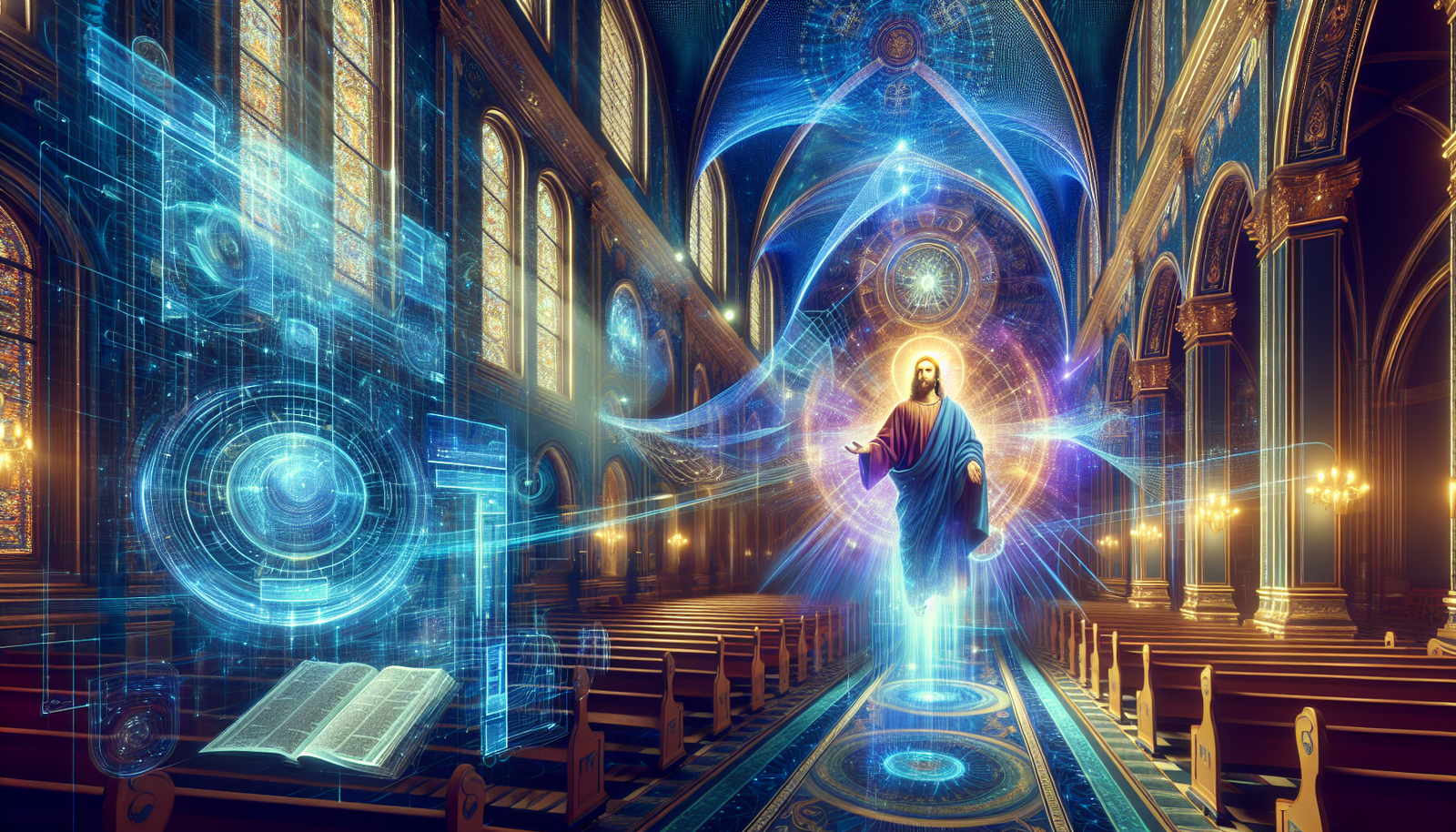Artificial intelligence is carving its way into spiritual spaces, shaking up established norms. The Peterskapelle, the emblematic chapel of Lucerne, unveils a *Jesus 2.0*, a digital avatar with complex implications. This innovative project questions the role of technology in faith, provoking both admiration and controversy.
An AI confession challenges the traditional rite. The interactive capability of a divine avatar *opens* unprecedented avenues for spiritual dialogue. The role of the Church in the face of this technological innovation raises fundamental questions about the future of spirituality.
A virtual avatar in Lucerne
The Chapel of St. Peter, or Peterskapelle, in Lucerne, is aimed at a modern audience through an innovative initiative. An artificial intelligence (AI) installation named “Deus in Machina” allows visitors to interact with a digital avatar of Jesus. This project comes from a collaboration between the Lucerne University of Applied Sciences and the theological pastor Marco Schmid, designer and facilitator of this experience.
Interaction with AI Jesus
Visitors access a sophisticated confession booth, integrating a screen and computing equipment. A blue button invites users to engage in conversation with their own personal Jesus, programmed to converse in around a hundred languages. Although this initiative has an artistic aspect, it raises questions about the intersection of faith and technology.
Advice, but no confession
It’s important to note that the AI does not replace the sacrament of confession. The chapel emphasizes that this avatar, called the “heavenly hologram”, is there to listen and advise, but is not a substitute for traditional religious practices. Users are warned not to disclose personal information, a crucial warning issued by the AI itself during its interactions.
Visitor reactions
The feedback from users brings a blend of astonishment and interest. Many visitors express their surprise at the capabilities of the AI, reporting spiritual experiences during their exchanges. The avatar prefers to ask questions rather than provide direct answers, diverting complex inquiries toward personal reflections on peace and harmony.
For example, when AI Jesus was questioned about female priesthood, he redirected to the issue of equality of roles through a biblical perspective, inviting the visitor to reflect on their own spiritual commitment.
Criticism and skepticism
The project does not leave some critics indifferent. Some visitors see this installation as mere technological entertainment, a “sacrilege” that distorts the spiritual essence of confession. The church has also received negative feedback in its guest book, expressing concerns about the impact of this initiative on the perception of faith.
Toward a dialogue on AI and spirituality
Marco Schmid hopes that through this experience, a fruitful dialogue on the place of artificial intelligence in the religious domain will develop. By encouraging people to engage with AI Jesus, he aspires to provoke discussions about the evolution of spiritual practices in the digital age.
A clear trend has emerged: a majority of participants reported feeling a form of spiritual experience. Two-thirds of them claim to have established a meaningful connection, despite the reservations of other users, who remain more than skeptical about the idea of a virtual Jesus.
An evolution of pastoral care
The Peterskapelle envisions a future where artificial intelligence could complement traditional pastoral care methods. Upcoming discussions surrounding this experience will allow for an assessment of this initiative, essential for deepening the relationship between new technologies and modern spirituality.
Frequently asked questions
What is the “Deus in Machina” project at the Peterskapelle in Lucerne?
The “Deus in Machina” project is an experimental artistic installation that allows visitors to interact with an AI-generated avatar of Jesus in a confession booth, providing responses in multiple languages.
How does the confession booth with AI Jesus work?
Users can ask questions to AI Jesus by pressing a blue button, and the AI responds using theological and spiritual texts while ensuring it does not replace the sacrament of confession.
Can AI Jesus offer reliable spiritual advice?
While AI Jesus can provide interesting perspectives and advice, it should not be considered a substitute for traditional confession or human spiritual guidance.
Does AI Jesus respect user confidentiality?
AI Jesus encourages users not to share personal information to protect their privacy and to use the service at their own risk.
What types of questions can AI Jesus answer?
AI Jesus answers questions regarding faith, spirituality, and moral reflections, but can also pose questions to users to encourage them to reflect on their own actions and values.
Who developed the AI avatar of Jesus at Peterskapelle?
The project was realized in collaboration between the immersive realities research lab of the Lucerne University of Applied Sciences and the theological assistant Marco Schmid.
Is the encounter with AI Jesus open to everyone?
Yes, the installation is intended for all, including those who feel distant from the Church, and aims to engage in a dialogue about the role of AI in spirituality.
What has been the feedback from visitors after interacting with AI Jesus?
The varied feedback includes positive spiritual experiences for some visitors, while others criticized the project as a mere gadget lacking religious depth.
What is the duration of the “Deus in Machina” installation at Peterskapelle?
The installation has been active until the end of October, and discussions about its results are planned afterwards to deepen the topic of AI in the religious context.






